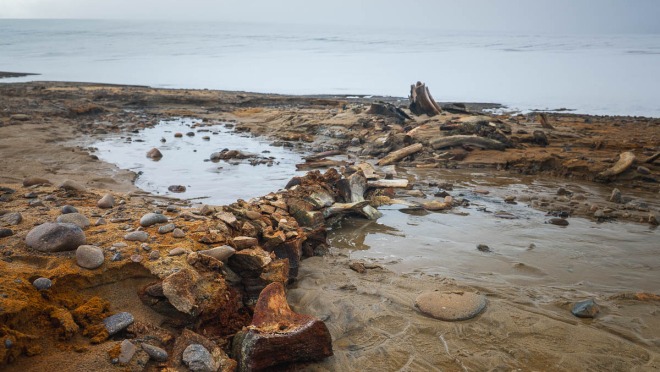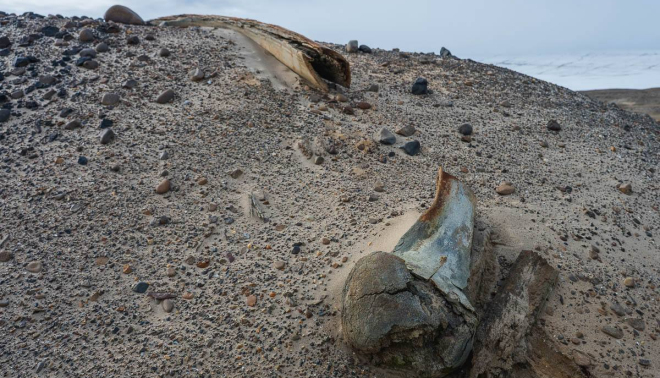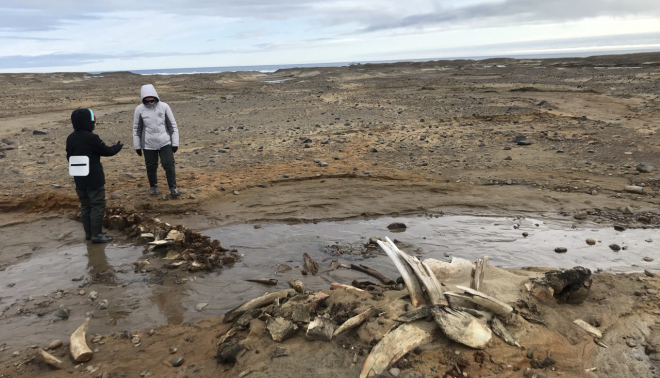Ancient whale 'graveyard' discovered under melting Russian glacier
An Arctic expedition found a collection of ancient whale remains where a rapidly retreating glacier once lay.

Scientists have discovered that a glacier in the Russian Arctic is retreating extremely quickly — and its rapid retreat has exposed a graveyard of ancient whale bones.
The research expedition landed on Wilczek Island, in the far north of Russia, earlier this year to study permafrost, according to a statement from the Arctic and Antarctic Research Institute (AARI) in Russia.
Using satellite imagery, the team compared current and past positions of the glacier, Nikita Demidov, an AARI geologist, said in the statement. The scientists found that the ice cap on the island had split into two parts over a period of less than 20 years.
This glacier's decline is part of a wider shift — a study from February found that, since 2000, glaciers have lost about 5% of their ice globally.
Related: Dramatic transformation of the Arctic landscape may be permanent

The whale "graveyard" was revealed by the glacier's retreat.

Satellite imagery showed that the glacier split into two parts in less than 20 years, exposing whale remains where it once stood.
The schism in the ice revealed several square miles of the island's surface, which held a large number of whale bones. Some of the skeletons are well preserved. Demidov noted that the bones are worst preserved near the seashore, where they have had longer to thaw, and are best preserved closest to the glacier.
"The paleontological find indicates an episode of extremely rapid sea level change in the area of the northernmost archipelago of Eurasia, which occurred in the last few thousand years," he said.
Get the world’s most fascinating discoveries delivered straight to your inbox.
The expedition is being conducted from an Russian ice-strengthened vessel called Professor Molchanov and will continue through August, according to Russian state news agency TASS.

Perri Thaler is an intern at Live Science. Her beats include space, tech and the physical sciences, but she also enjoys digging into other topics, like renewable energy and climate change. Perri studied astronomy and economics at Cornell University before working in policy and tech at NASA, and then researching paleomagnetism at Harvard University. She's now working toward a master's degree in journalism at New York University and her work has appeared on ScienceLine, Space.com and Eos.
You must confirm your public display name before commenting
Please logout and then login again, you will then be prompted to enter your display name.
 Live Science Plus
Live Science Plus





